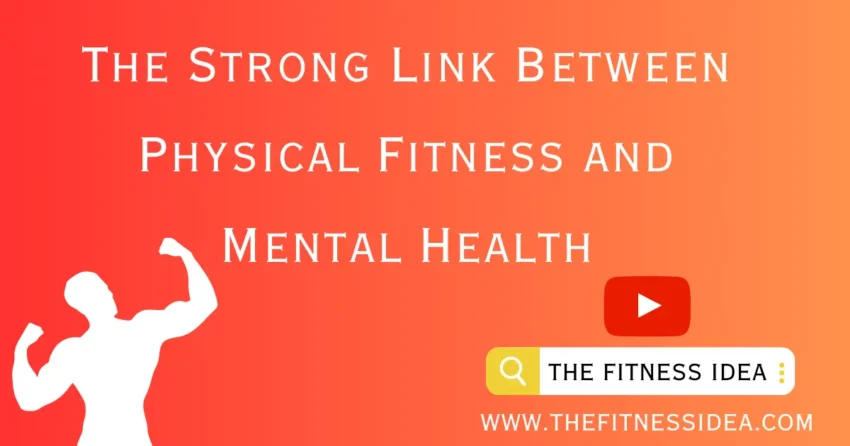In today’s fast-paced world, maintaining good physical and mental health is more important than ever before. The connection between physical fitness and mental well-being is a topic that has gained significant attention in recent years. As we delve into the relationship between the two, it becomes clear that a strong link exists, highlighting the importance of prioritizing both aspects of our health.
Introduction
In this article, we will explore the intricate relationship between physical fitness and mental health. We’ll dive into how regular exercise impacts our brain, mood, and overall psychological well-being.
The Effects of Physical Fitness on Mental Health
The Chemical Connection
Regular physical activity has a profound impact on the brain’s chemistry. Exercising causes the release of endorphins, also known as “feel-good” hormones. These chemicals are responsible for reducing stress, anxiety, and depression, thereby promoting a positive mental state.
Stress Reduction
Exercise acts as a natural stress reliever. It helps reduce the production of cortisol, a hormone associated with stress. By engaging in activities like jogging, yoga, or swimming, individuals can effectively manage and lower their stress levels.
Cognitive Enhancement
Physical fitness is not only about muscles; it’s also about improving cognitive function. Studies have shown that aerobic exercises enhance memory, focus, and creativity. This cognitive boost contributes to better mental clarity and acuity.
The Psychological Benefits of Physical Activity
Boosting Self-Esteem
Engaging in regular exercise improves body image and self-esteem. Achieving fitness goals and seeing positive changes in one’s physique can significantly enhance self-confidence.
Battling Depression
Exercise can be a very effective technique in the treatment of depression. It helps in the production of neurotransmitters like serotonin, which play a crucial role in regulating mood and emotions.
Building Resilience
Physical fitness fosters mental resilience. It teaches individuals the importance of discipline, patience, and perseverance, qualities that are transferable to various life challenges.
The Bidirectional Relationship
How Mental Health Affects Physical Fitness
The relationship between physical fitness and mental health is bidirectional. Poor mental health can lead to physical health issues, as individuals might engage in unhealthy behaviors or neglect self-care.
Motivation and Consistency
Maintaining a regular fitness routine requires motivation and consistency. Good mental health provides the motivation needed to stay committed to one’s exercise regimen.
Strategies for Incorporating Fitness Into Daily Life
Finding Enjoyable Activities
Engaging in physical activities that you enjoy can make fitness a more enjoyable and sustainable part of your routine.
Setting Realistic Goals
Setting achievable fitness goals prevents feelings of frustration and enhances the sense of accomplishment.
Socializing Through Exercise
Joining group fitness classes or sports clubs not only improves physical health but also provides opportunities for social interaction, boosting mental well-being.
Conclusion
The inseparable bond between physical fitness and mental health cannot be ignored. Regular exercise not only improves our physical health but also positively influences our psychological well-being. By recognizing and nurturing this connection, individuals can lead healthier, happier lives.
FAQs
Can I experience immediate mental health benefits from exercise?
While some immediate mood enhancement can be felt after a single workout due to endorphin release, long-term mental health benefits require consistent exercise.
What type of exercise is best for mental health?
Aerobic exercises like running, swimming, and cycling have shown significant benefits for mental health due to their impact on neurotransmitter production.
How often should I exercise to see improvements in my mental health?
Engaging in at least 150 minutes of moderate aerobic activity per week, spread out over several days, can lead to noticeable improvements in mental health over time.
Can physical activity replace therapy or medication for mental health conditions?
While exercise can complement therapeutic approaches, it is not a replacement for professional medical treatment. Consultation with a healthcare provider is essential for managing mental health conditions.
What are some simple ways to stay motivated to exercise regularly?
Setting realistic goals, varying your routine, and finding an exercise buddy or community can help maintain motivation and consistency in your fitness journey.
